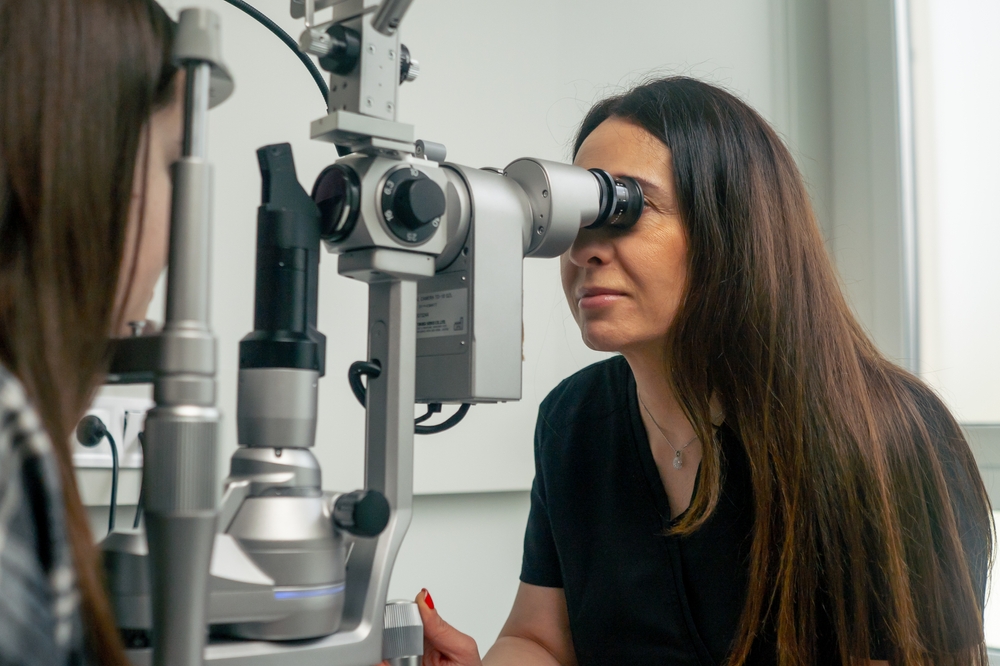
When it comes to eye health, many people are familiar with traditional corrective options like glasses and contact lenses. However, for some individuals, visual issues go beyond what these tools can address. In such cases, vision therapy can provide a personalized solution to help improve visual function. Whether you're dealing with amblyopia (lazy eye), strabismus (eye turn), or difficulties with visual processing, vision therapy is a specialized form of treatment aimed at improving the brain-eye connection.
Comprehensive Eye Exam and Diagnosis
The first step in the vision therapy process is a thorough eye exam. During this visit, your optometrist will assess your visual health, checking for refractive errors (like nearsightedness or farsightedness), eye teaming, focusing, and tracking abilities, as well as how your eyes process and interpret information. If any functional visual issues are detected—issues that affect the way your brain and eyes work together—your optometrist may recommend further evaluation for vision therapy.
This diagnosis might reveal conditions such as:
Lazy Eye (Amblyopia): A condition where one eye doesn’t develop normal vision, often due to poor eye alignment.
Strabismus (Eye Turn): When the eyes are not aligned properly, causing them to point in different directions.
Convergence Insufficiency: Difficulty focusing both eyes on a near object, leading to eye strain, headaches, or double vision.
Visual Processing Disorders: Challenges in how the brain processes visual information, affecting reading, hand-eye coordination, and more.
Personalized Vision Therapy Plan
Once a diagnosis is made, your optometrist will create a personalized vision therapy plan designed to address your specific needs. This treatment plan may consist of a series of exercises that aim to improve visual skills such as eye coordination, focusing, and tracking. These exercises can be done in-office under the guidance of your optometrist, as well as at home to reinforce progress.
Your therapy may include activities like:
Eye Exercises: Designed to improve eye movements and eye teaming.
Patching: Sometimes recommended to strengthen a weaker eye (as in the case of amblyopia).
Computer-Assisted Training: Programs that help improve visual processing speed and accuracy.
Prism Lenses: These lenses can be used to improve alignment and reduce double vision.
Each plan is tailored specifically to the individual's needs, ensuring the best possible outcome.
Ongoing Monitoring and Adjustments
Vision therapy is not a one-size-fits-all treatment, which is why ongoing monitoring is crucial. Your optometrist will schedule regular follow-up appointments to track your progress and adjust your therapy plan as necessary. These adjustments may involve increasing the difficulty of exercises, introducing new techniques, or changing the frequency of therapy sessions.
Reaching Your Goals
The ultimate goal of vision therapy is to help patients achieve optimal visual function. For some, this may mean completely eliminating symptoms such as double vision or improving depth perception. For others, vision therapy may help enhance reading abilities, sports performance, or overall visual comfort. While the duration of therapy varies depending on the severity of the condition and the patient's commitment to their exercises, most people begin to see improvements after a few months of consistent therapy.
Maintenance and Long-Term Benefits
Once the therapy is complete, many individuals continue to experience long-term benefits from their improved vision. However, some may require occasional maintenance sessions or refresher exercises to ensure that the skills they've developed remain sharp. Your optometrist will work with you to determine the best approach to maintaining your improved vision over time.
Is Vision Therapy Right for You?
If you or a loved one is experiencing difficulties with vision that go beyond what traditional eyewear can address, vision therapy may be a viable solution. At Giles Optometry, we specialize in diagnosing and treating a variety of vision issues with personalized therapy plans tailored to meet your needs.
Contact Giles Optometry to schedule a comprehensive eye exam and learn how vision therapy can improve your visual function and overall quality of life. Visit our office in La Mesa, California, or call (619) 399-2506 to book an appointment today.




